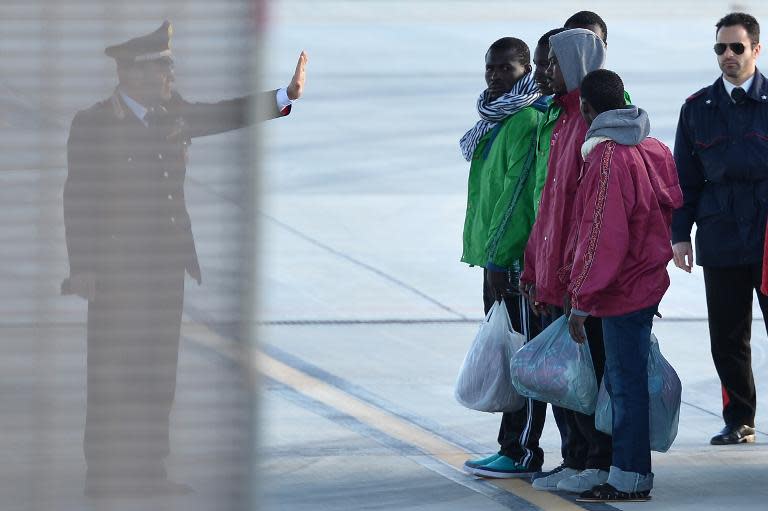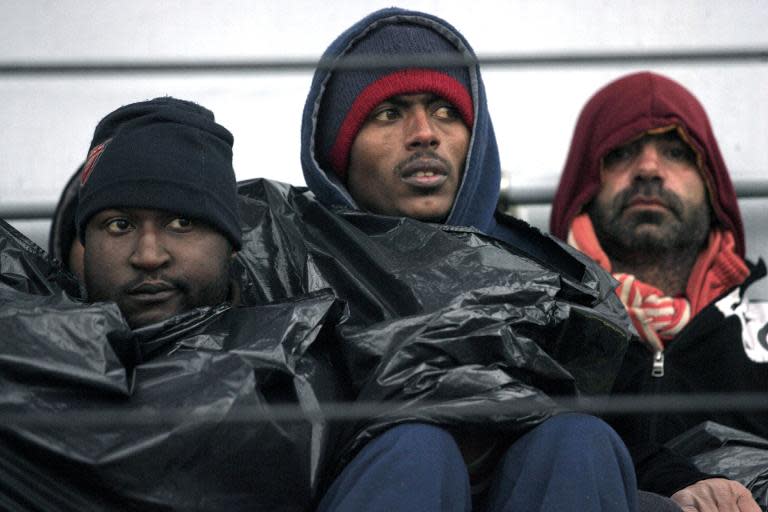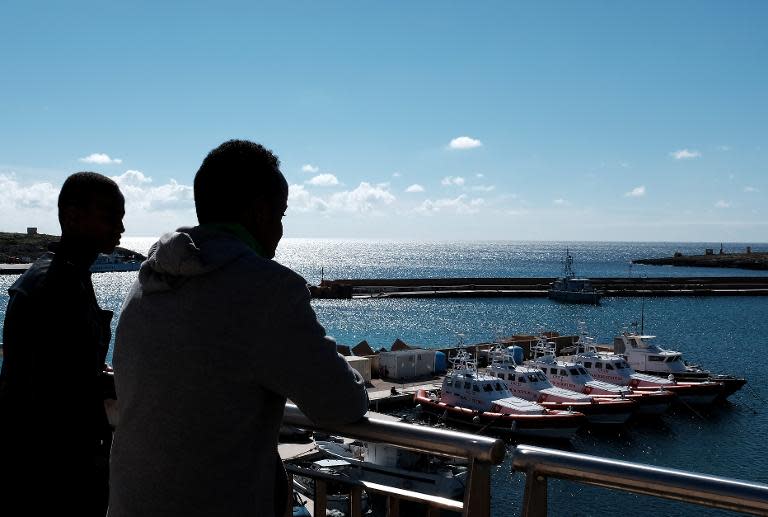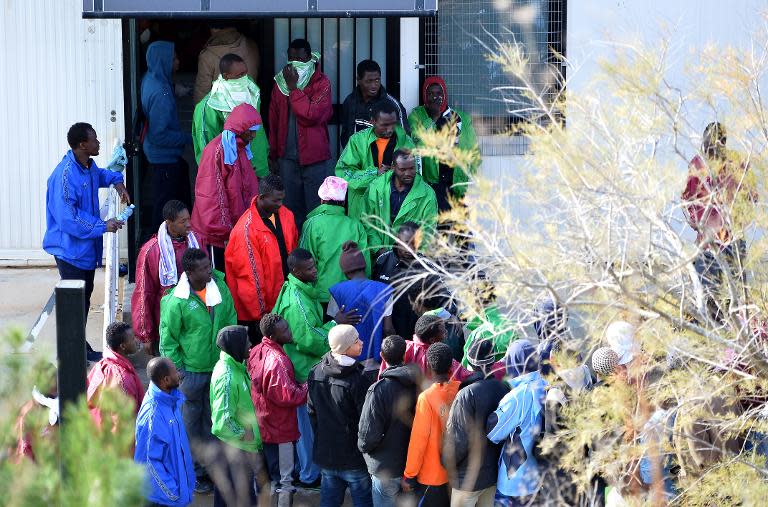Tiny Italian island struggles to cope with tide of migrants
Authorities on the Italian island of Lampedusa struggled Tuesday to cope with a huge influx of newly-arrived migrants as aid organisations warned the Libya crisis means thousands more could be on their way. Officials on the tiny island south of Sicily were trying to process more than 1,200 exhausted, often traumatised and ill Africans in a reception centre designed for less than a third of that number. Around 200 of them were children, some 100 women. All of them were part of a group of 3,800 would-be immigrants to Europe who have been rescued in the Mediterranean since Friday. At least 330 people are thought to have perished while trying to cross from Libya to Italy in the last week, 29 of them from exposure after being rescued too late by the Italian coastguard in near freezing conditions. Federico Fossi of the UN High Commissioner for Refugees said the reception facilities on Lampedusa, Italy's most southernly outpost, were simply inadequate. "There are too many people to cope with," he told AFP. "We can't provide basic support -- dry clothes, food, water, telephone cards, psychological support. "We haven't got room to separate men from women and children, or to isolate people who have scabies." - 'Don't like black' - The tragedies, and the dramatically increased numbers of arrivals, have sparked renewed debate over whether European governments should be funding bigger naval search-and-rescue operations or doing more to address the problems in Libya -- where warring militias have left the country with no functioning government. The UNHCR's Fossi said the goal was to move most of the refugees on from Lampedusa to better-equipped reception centres on the Italian mainland within 48 hours. "The survivors of last week's shipwrecks are very traumatised," he said. "They saw their travelling companions, their friends, fall into the water or die in front of them. In many cases, they described to us having being forced to get on board these unseaworthy vessels at gunpoint. "Since the Arab Spring of 2011, we know that sub-Saharan Africans in Libya have been harassed, attacked and subject to arbitrary detention. They are afraid and today they are fleeing." Fred, a Nigerian who was one of the rescued migrants, told AFPTV: "In Libya, people they are like vampires. "They don't like black. When they see black outside, they'd like to shoot him. They are killing many people, that's why everybody's running to the sea." The International Organisation for Migration echoed the warning about the implication of events in Libya for Europe's attempts to keep its borders closed to people fleeing conflict in east Africa or the Middle East, or poverty and hunger elsewhere. More than 170,000 migrants were landed in Italy last year and increasingly confident people smugglers could ensure that record figure is surpassed this year, spokesman Joel Millman said. "It seems to be growing," Millman told reporters at IOM headquarters in Geneva. "There are many, many speculations as to why. The profits.. are certainly one, but also things have gotten so out of control in Libya right now that even the smuggling gangs don't feel they can hold their inventory, to use such a word, indefinitely, so they have started vacating the space." - Smuggling super profits - UNHCR spokesman Adrian Edwards said smuggling had become more lucrative and less risky because of the chaos in lawless Libya. "Smuggling networks are operating with much greater impunity," Edwards said. Some of the migrants rescued in the Mediterranean this week told the refugee agency they had paid between $500-$1,000 (439-877 euros) for their crossing in rubber dinghies. "We've seen about 100 people per dinghy, so do the math. You're talking about $50,000-$100,000 per boat," he said. Edwards said UNHCR had also received information that smuggling networks in sub-Saharan and eastern Africa were also ramping up their activity. "This is a much wider problem than what we're seeing on the Mediterranean or just in Libya. It's quite wide. It's quite alarming."





